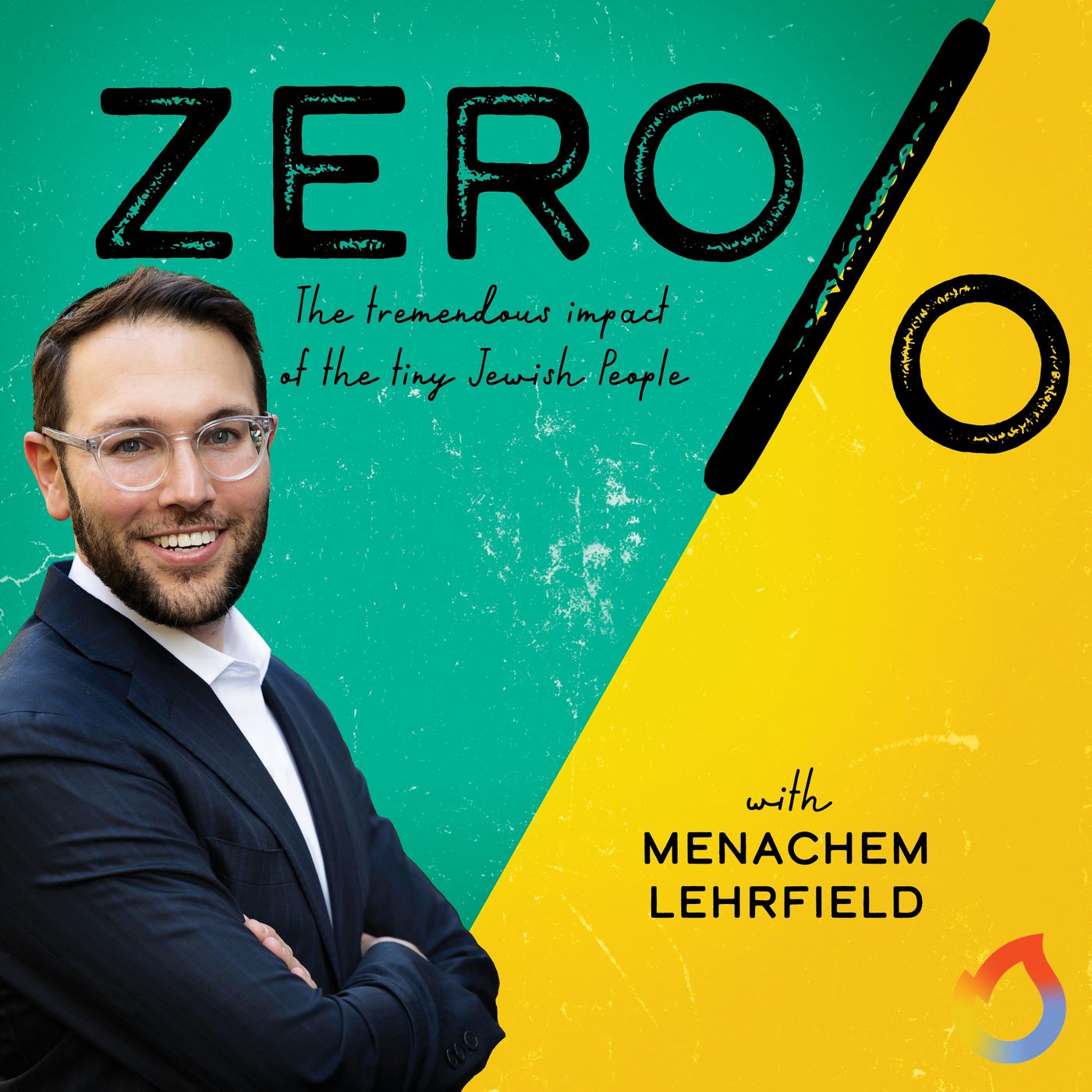7 - Mind the Gap
Description
Instead of focusing on the outcome, we need to "Enjoy the Journey". In this episode, Rabbi Lehrfield continues the discussion using our acronym Be Free.
You can hear more from Dr. Dweck here: https://www.google.com/url?sa=t&rct=j&q=&esrc=s&source=web&cd=&cad=rja&uact=8&ved=2ahUKEwipi-3RjLbzAhWYvp4KHaBkCEEQwqsBegQIBRAB&url=https%3A%2F%2Fwww.youtube.com%2Fwatch%3Fv%3DhiiEeMN7vbQ&usg=AOvVaw0ZqEGfXWawIoLla_rt0vmU
You can get a copy of Mindset: The New Psychology of Success by Dr. Carol Dweck here:
https://www.amazon.com/Mindset-Psychology-Carol-S-Dweck/dp/0345472322
Hey everyone. I'm Menachem Lehrfield. Welcome back to Zero Percent. We've been discussing the importance of the growth mindset, and delving into the work of Professor Carol Dweck. We're using the framework of freedom and our acronym BE FREE. In our last episode, we talked about the importance of being curious, asking questions and the focus Judaism places on those questions. This week, we continue our discussion with our first E, of BE FREE, which is enjoy the journey.
Carol Dweck writes in her book Mindset: The New Psychology of Success, that in the fixed mindset, everything's about the outcome. If you fail, or if you're not the best, it's all been wasted. The growth mindset allows people to value what they're doing regardless of the outcome. And this is so crucial because when you look at people with a fixed mindset, it really all is about the outcome, and more importantly, what other people perceive as success in that outcome. It doesn't matter so much whether or not I succeed. What really matters is do I look like a success.
And when everything is judged based on the outcome, what ends up happening is instead of discovering what we're really good at, instead of improving in certain areas or even better yet, instead of just enjoying something I'm not good at, somebody with a fixed mindset shies away from anything that they're not good at instantly, naturally. And if we don't try new things, we don't get better at new things. And what ends up happening is the gap ends up widening more and more and more. And we see this in really all areas of progress. Oftentimes we see a lot of these things, most notably in sports and athletics, and it's not that those are necessarily more profound, more detrimental, more positive. It's just that oftentimes in sports, you see a much... I'll say you have a much clearer delineation of progress, of lack of progress, of how these things work.
So we see with children in sports, kids who are good at certain sports, continue playing those sports. And what happens? Because they continue playing them and because they can continue trying, they get better. The kids who are not so good instantly ended up not playing because they know that when they play it, they don't play very well. People are going to make fun of them. They're much better off shying away from and not playing that sport. And then what ends up happening? Obviously they don't get any better because they don't try and they don't participate.
So you end up going through whatever it is, the next 10, 20, 50, really the rest of your life, where those who are athletic and good at sports end up getting better at sports. Those who are not so athletic end up getting worse or staying the same, not improving at all. And that gap that was somewhat small at the beginning, ends up widening more and more and more, until one day you look back and you say, "Wow, these kids are so athletic, and these kids are not." Is that somebody with a fixed mindset would say, "You see, it's true. I told...
More Episodes
Published 04/21/24
Published 04/19/24
Published 04/19/24


